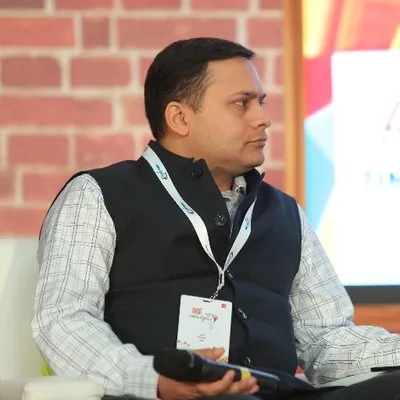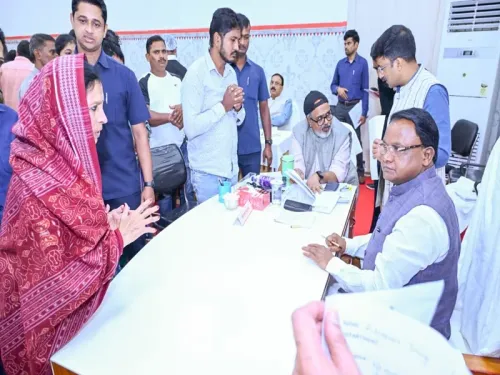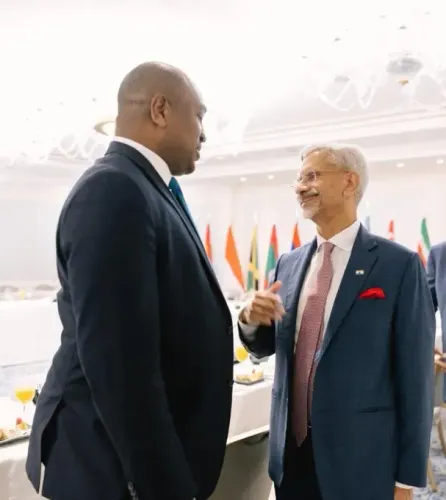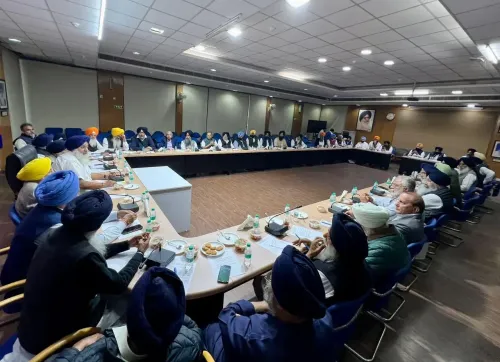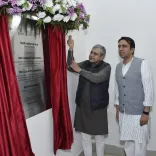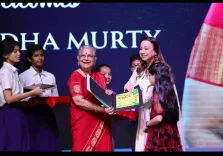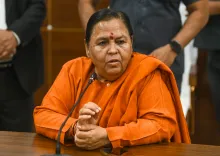How are Plastic-free Swadeshi Fairs in Gujarat Boosting the ‘Vocal for Local’ Movement?
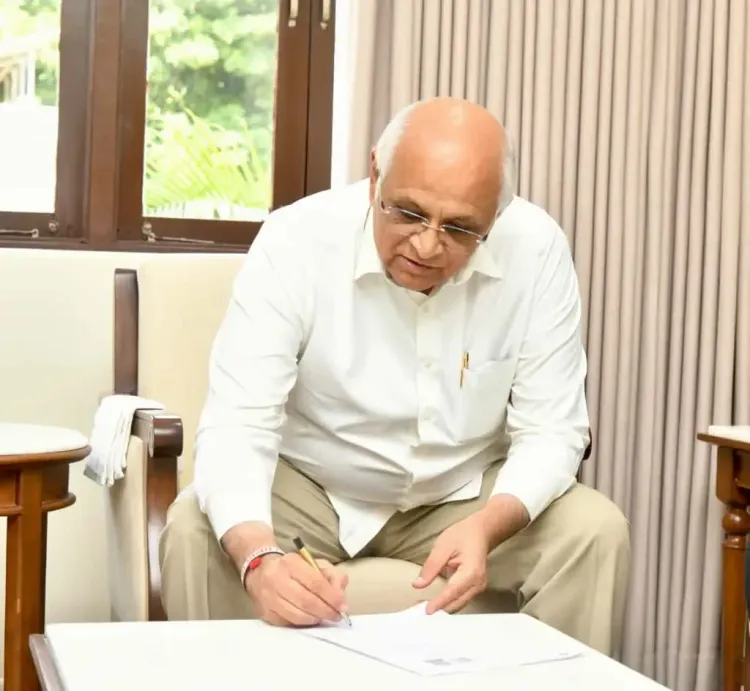
Synopsis
Key Takeaways
- Plastic-free Swadeshi fairs in Gujarat have generated over Rs 10 crore in sales.
- More than 40.5 lakh visitors participated in these fairs.
- The initiative supports local artisans and small businesses.
- Cultural events at the fairs aim to engage families and promote Swadeshi products.
- Future events include a large shopping festival in Ahemdabad.
Gandhinagar, Nov 24 (NationPress) The initiative for self-sufficiency in Gujarat experienced a significant surge this year as plastic-free Swadeshi fairs conducted in 16 cities achieved sales surpassing Rs 10 crore and attracted over 40.5 lakh visitors within merely two months, as reported by officials on Monday.
This initiative, which resonates with Prime Minister Narendra Modi’s appeal for every household to adopt the “Har Ghar Swadeshi” movement, is being actively promoted under the guidance of Chief Minister Bhupendra Patel.
The state government has introduced a variety of programs to assist rural artisans, handicraft experts, and small business owners, which include the Gujarat Aatmanirbhar Yatra, G-Maitri Scheme, and Mahila Udyog Sahay Yojana. Awareness initiatives at district and taluka levels, such as Swadeshi Melas, Walk for Swadeshi, and Vocal for Local campaigns have significantly enhanced community engagement.
As part of the Urban Development Year 2025, Swadeshi fairs were held from September 10 to October 31 in cities like Bhavnagar, Gandhinagar, Jamnagar, Junagadh, Rajkot, Surat, Vadodara, Anand, Gandhidham, Mehsana, Morbi, Nadiad, Navsari, Porbandar, Surendranagar, and Vapi.
Participants included citizens, self-help groups, local artisans, and small traders, with 540 self-help groups being assigned 2,707 stalls to showcase indigenous products. The fairs also hosted cultural events, game shows, folk music, puppet performances, and theater to engage families and promote the adoption of Swadeshi products.
The state government is set to organize a significant Swadeshi-themed shopping festival in Ahemdabad this December, followed by additional fairs across municipal areas.
Expressing optimism about community involvement, Prime Minister Modi emphasized that Swadeshi and Aatmanirbhar Bharat are pivotal for a prosperous India. He asserted that each citizen will embody the ‘Vocal for Local’ ethos, and by 2047—marking a century of independence—India will undoubtedly emerge as a fully developed nation.
India’s commitment to sustainability is gaining momentum through ambitious policies, grassroots innovations, and international climate pledges. From expanding renewable energy capacity with a target of 500 GW by 2030 to enforcing stringent pollution standards, promoting electric transport, and advancing extensive afforestation, the nation is integrating sustainability into governance and everyday life.
Programs like the Swachh Bharat Mission, Jal Jeevan Mission, and extended producer responsibility for plastics are reshaping environmental practices, while states and cities invest in green infrastructure, circular economy strategies, and climate-resilient urban planning.
As India positions itself as a leader in the Global South, sustainability transcends mere environmental goals, becoming a strategic avenue for economic growth, energy security, and enduring national resilience.

